"The great son of mankind": the 195th anniversary of the birth of Fyodor Mikhaylovich Dostoevsky
Share:
The name of the great Russian writer Fyodor Mikhailovich Dostoyevsky is among the prominent names of not only Russian, but also the entire of world literature. According to UNESCO, Dostoevsky today - one of the most widely read writers based on the works which the world judges about Russia, about the mysterious Russian soul.
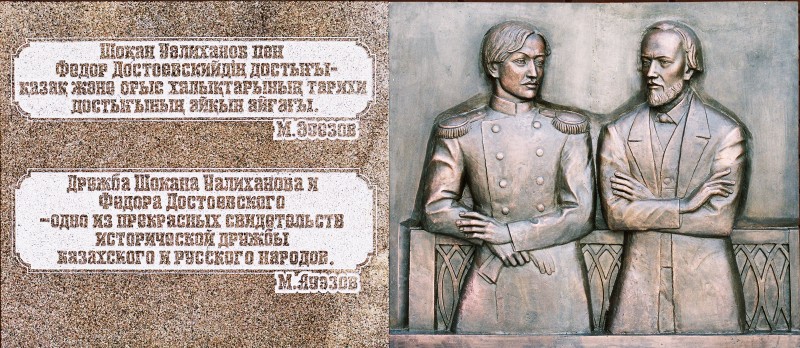
2005 North-Kazakhstan region, Petropavlovsk intersection of streets the Constitution of Kazakhstan and Park
Bas-relief of S. Valikhanov and Dostoevsky opened 25.02.2005 by the President of the Republic of Kazakhstan N.A. Nazarbayev. Author bas - Bayarlin A.Kh.
Fyodor Dostoevsky - Russian writer, thinker, philosopher and writer. Corresponding Member of the St. Petersburg Academy of Sciences since 1877. Among the most significant works of the writer's novels include "great Pentateuch." The novel "Crime and Punishment", "The Idiot", "Demons" and "The Brothers Karamazov" are included in the list of the 100 best books of all time in 2002. Many famous works of Dostoevsky repeatedly portrayed and dramatized in the theater staged the ballet and opera. As in the beginning, and in the continuation of his literary work after 10 years of penal servitude and exile for participating in the circle Petrashevsky Dostoevsky acted as an innovator in line with the traditions of Russian realism that has not received a proper assessment of contemporaries at the writer's life.
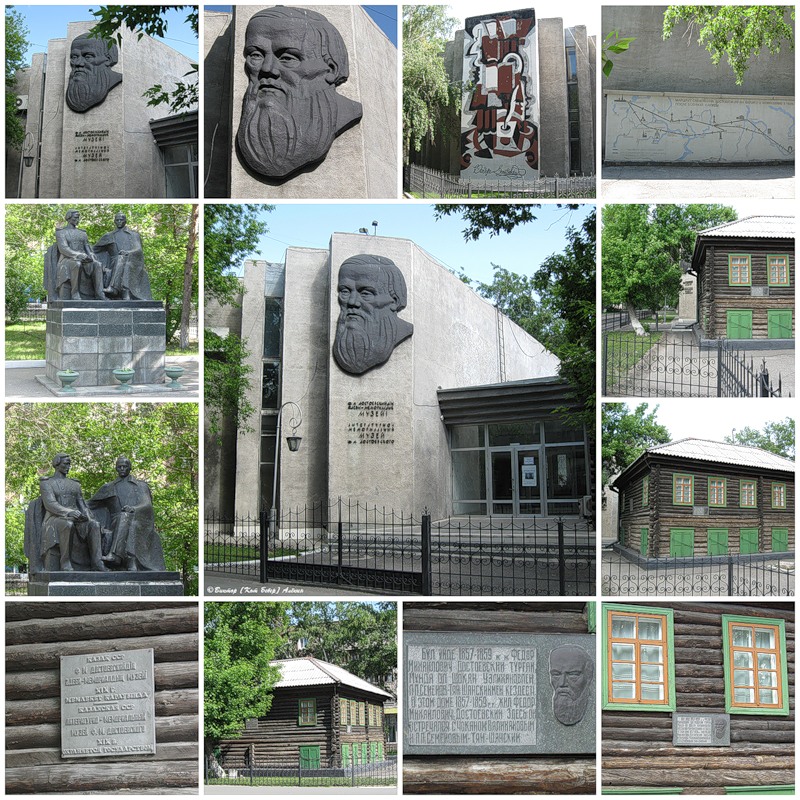
Semipalatinsk Museum Fyodor Dostoevsky was opened May 7, 1971 on the basis of the Decree of the Kazakh SSR Council of Ministers N 261
After the death of Dostoevsky was recognized as a classic of Russian literature and one of the best novelists of world importance, it is considered to be the first representative of personalism in Russia. Creation of the Russian writer had an impact on world literature, in particular, on the work of Nobel Prize for Literature, on the development of existentialism and Freudianism. When Dostoevsky was 16 years old, his mother died of tuberculosis, and his father sent eldest sons, Michael and Theodore(Fyodor), the guesthouse K.F. Kostomarov in St. Petersburg to prepare for admission to the Main Engineering School. Michael and Fyodor Dostoevsky wanted to be a writer, but his father thought that the work of the writer will not be able to provide future older sons, and insisted on their admission to engineering school, after which service guarantee material wellbeing. In "Diary of a Writer" Dostoevsky recalled how on the way to St. Petersburg with my brother, "we dreamed only of poetry and poets", "I constantly in mind composing a novel of Venetian life."
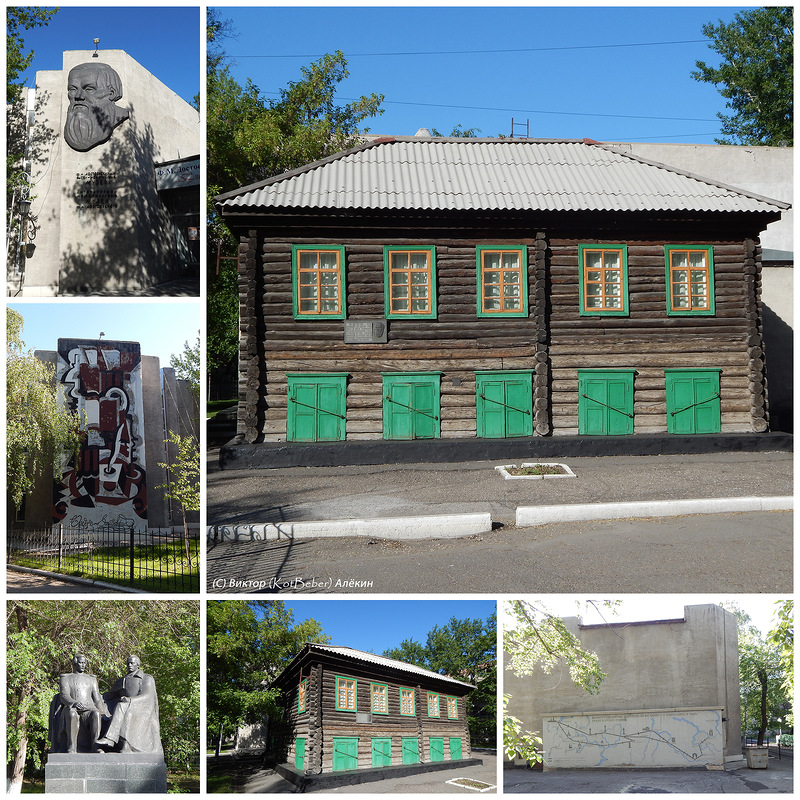
The basis of the museum became polutoraetazhny wooden house built in 1838, №6 in gos.spiske historical and cultural monuments of national importance. The literary-memorial museum of Dostoevsky, a former postman Lepuhin in which Fyodor Dostoevsky rented an apartment in the 1857-1859 biennium
Studying in college burdened young man who felt no vocation to the service of the future. All my free time devoted to reading Dostoevsky's works of Homer, Corneille, Racine, Balzac, Hugo, Goethe, Hoffmann, Schiller, Shakespeare, Byron, and of Russian authors Derzhavin, Lermontov, Gogol, and knew by heart almost all the works of Pushkin. According to the memoirs of Russian geographer Semyonov-Tyan-Shan, Dostoevsky was "educated many Russian writers of his time, such as Nekrasov, Panaeva, Grigorovich, Pleshcheeva and even of Gogol."Inspired read, the young man at night carried out the first steps in their own literary works. In the fall of 1838 to learning comrades in the Engineering College under the influence of Dostoevsky organized a literary circle, which included I. Berezhetskaya, N. Witkowski, Beketov and DV Grigorovich. After graduation in 1843, Dostoevsky was appointed lieutenant field engineer in St. Petersburg engineering team, but in the early summer of the following year, having decided to devote himself to literature, resigned and October 19, 1844 received a dismissal from military service with the rank of lieutenant.
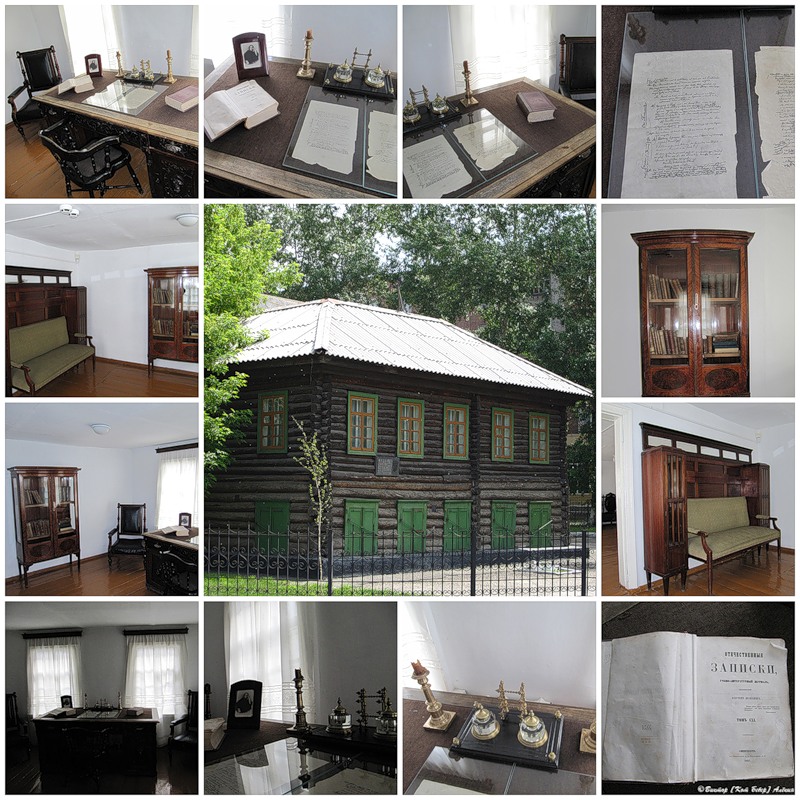
Creative interconnection of Fyodor Dostoyevsky and Chokan Valikhanov - the deep knowledge of their own history and respect for the literature and culture of other nations will help to objectively evaluate the impact of literature on one another, thereby enriching human values.In the field of research has historically taken shape communication and interaction literatures Kazakh philological science has a wealth of experience. Many studies address the question of the meaning of the writers of different nations in the development of world literature. This problem was illuminated Sh.K.Satpaeva writings K.Kireeva-Kanafieva, M.I.Fetisova, V.I.Kuleshova and others.
The most thorough and deep problems of interaction between literatures developed Sh.Satpaevoy. She noted: "The literary connection - penetration of one literature to another world - have become an important factor in the development of literature of each nation and at the same time the fact of the world literary process."Studying of Kazakh literature due to the culture of other nations and continues today. Of all the diverse centuries taken shape relations stand traditional ties Kazakh and Russian classical literature.
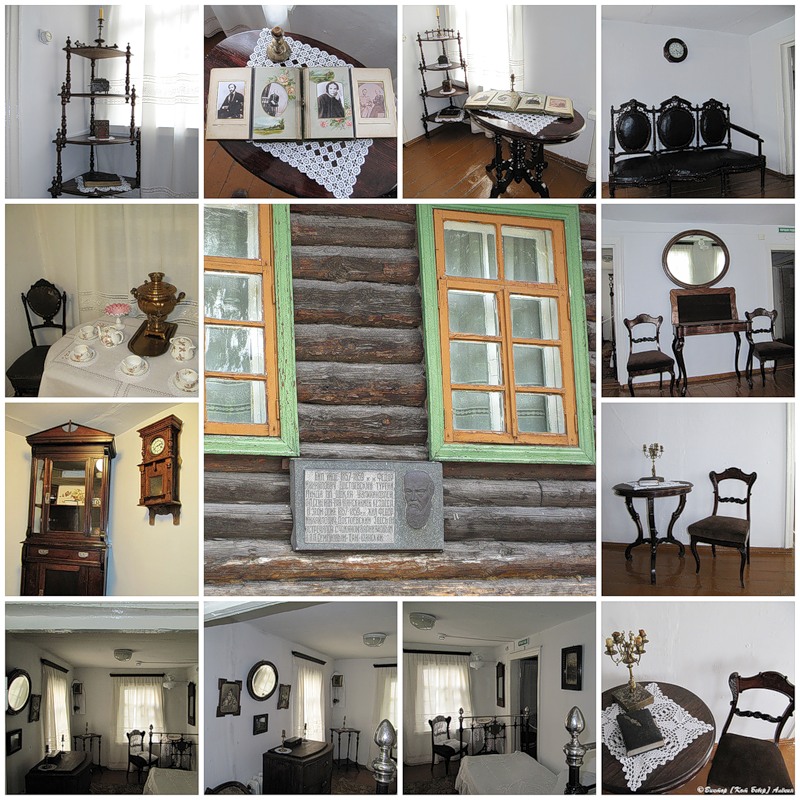
The highest point in the history of Russian-Kazakh literary relations of the first half of the XIX century, more precisely 40-60-ies were fruitful ideological and creative relationship of the first Kazakh educator Chokan Valikhanov Chingisovich (1835-1865) with outstanding representatives of Russian literature and culture.The most outstanding works are his Ch.Valikhanov articles and materials about travel to Kashgar, "On the state Altyshar or six cities in eastern Chinese province of Nan-Lu (Minor Bukhari) in the 1858-1859 year," "Extract from a report about the trip to Kashgar Valikhanov lieutenant "unpublished diaries of 1858-1859," Ablai "," Essays Dzungaria "," Notes on judicial reform in the Kirghiz of the Siberian department "," Arms Kirghiz in ancient times and their military armor "and others.As a folklorist ChokanValihanov recorded orally was common Kazakh heroic epics, songs, stories, published a series of articles ( "Tradition and legend Big Kirghiz-Kaisak hordes") and made a partial record of the heroic epic "Manas".Activities ChokanValikhanov ushered in genuine mutual enrichment and the efficient interaction of Russian and Kazakh literature. ChokanValihanov creatively perceived ideological spiritual heritage of the two peoples. His friendship with Dostoevsky, ChokanValihanov contributed to the development of literary relations between Kazakhstan and Russia. Of great interest for the history of Russian-Kazakh relations is substantial literature ChokanValikhanov correspondence with Dostoevsky. There are a lot of unexplored materials, unsolved problems. In particular, there is little research on the links of the Russian writer Dostoevsky works with the Kazakh literature.Do not investigated until the end of the period of his life in exile, where he lived for five years in the Kazakh land, in Semipalatinsk. Kazakhstan academician Margulan said: "Semipalatinsk lucky that his story is often associated with the names of prominent personalities: geniuses like Dostoevsky and Ciocan Valikhanov, for over a century are born once ...".
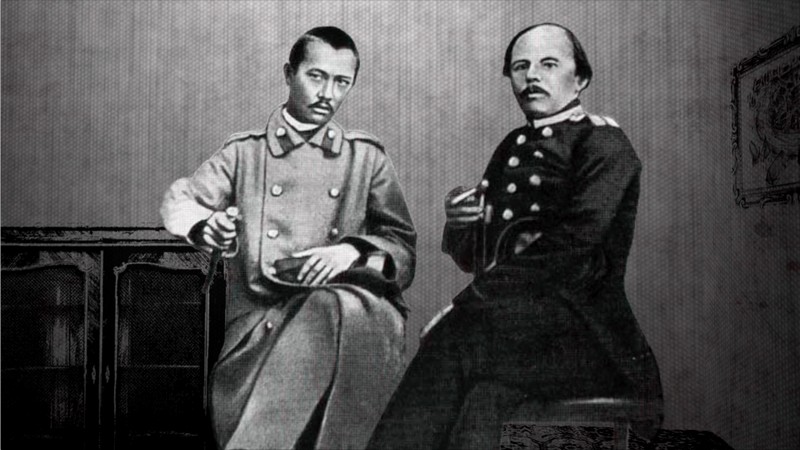
Although Dostoevsky denied the charges against him, the court found him "one of the major criminals" for reading and for "failure to report criminal dissemination of religion and government letter writer Belinsky." Until November 13, 1849 the Military Judicial Commission of Fyodor Dostoevsky sentenced to deprivation of all property rights and "death by firing squad." November 19 Dostoevsky death sentence was canceled on the conclusion of general auditoriata "due to non-compliance of his guilt of the convicted person" condemned to eight years of hard labor. In late November, the Emperor Nicholas I, when approving prepared by General auditoriata Petrashevists sentence replaced eight years of hard labor Dostoevsky followed by a four-year military service as a private. December 22, 1849 on the parade ground Petrashevists Semenov was read the verdict of "death by shooting" with a broken sword over his head, which was followed by suspension of execution and pardon. At the mock execution of pardon and imposing a sentence of hard labor, it was announced at the last moment. One of those sentenced to death, Nikolai Grigoriev, crazy. Sensations that Dostoevsky could experience before his execution, reflected in one of the monologues of Prince Myshkin in "The Idiot" novel. Most likely the political views of the writer began to change more in the fortress. So, Petrashevists F.N. Lyvov remember Dostoevsky's words, spoken in front of the exponential penalty on the parade ground Semenov Speshnev: «Nous serons avec le Christ» (We will be with Christ), to which he replied: «Un peu poussiere» (a handful of dust).
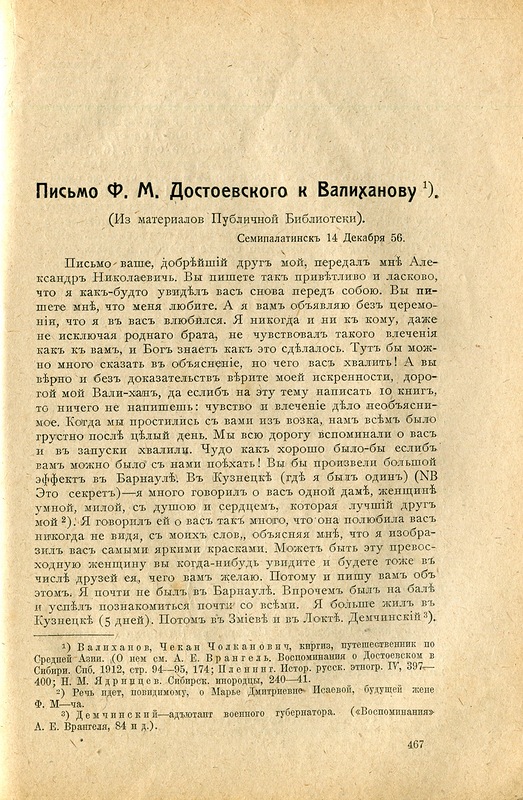
After prison, Dostoevsky lived for a month in Omsk, in the house of K. Ivanov. At this time in the Omsk Cadet Corps I attended one of the descendants of Khan Ualiy ChokanValihanov. Between Valikhanov, was in this period, to choose life paths, and Dostoyevsky having friendly relations. In Semipalatinsk Dostoevsky arrived stunned hard labor, lonely, confused, with extensive, but not definite plans to return to real life. Semipalatinsk period of his life Dostoevsky - it heyday of his friendship with ChokanValikhanov. And this friendship with Chokan left a deep trace in the spiritual world of the writer. This friendship is not just supported Dostoevsky in a difficult time, not only helped in enhancing the creative activity. Familiarity with a beautiful, spiritual, and moral character of the young Kazakh, in a short time became a scholar with a European reputation, helped Dostoevsky to establish itself in the conviction of the equality of nations and races, the conviction is later nothing could shake. Dostoevsky, recalling his friend Kazakhs, wrote in "Diary of a Writer": "We are the first announced to the world that it is not through the suppression of the individual nationalities strange to us whether we want to achieve their own prosperity, but on the contrary, we see it only in the free". Dostoevsky for the first time since the serving of penal servitude felt the warmth of human relations. At the end of May 1856 Ch.Valihanov Dostoevsky wrote: "I'm so pleased these few days spent with you in Semipalatinsk, now just think how else would you go ... Of course, you know how I tied to you and I love you ". Dostoevsky replied to this: "You're so friendly and affectionate, I like to see you again in front of him. You write to me that I love. And I declare to you without ceremony, I'm in love with you. I have never and no one, not even excepting his brother, did not feel such a desire as you, and God knows how to do it ". Russian writer throughout his life carried the image of a close friend Chokan Valikhanov.
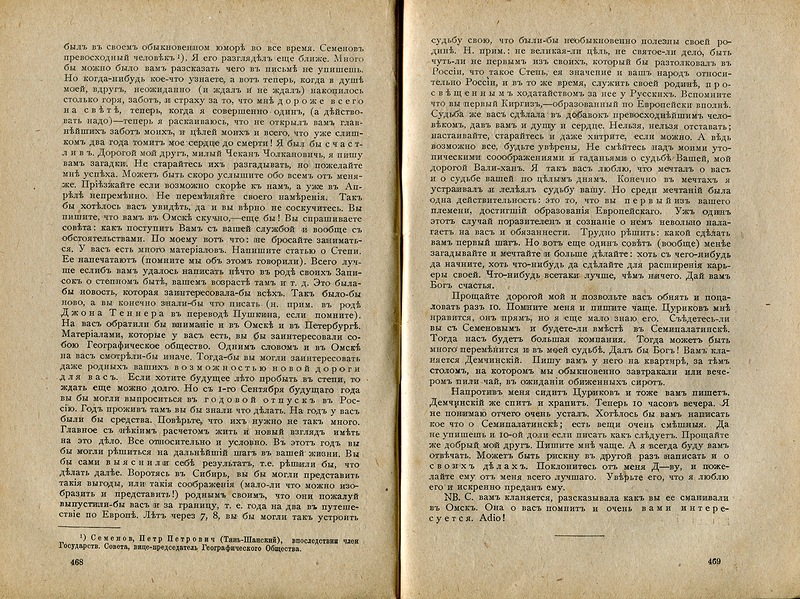
Steppe was a way to Dostoevsky. He thought a lot about the ways of its development and main hopes pinned on the steppe, like his young friend. In Valikhanov Dostoevsky saw a brilliant combination of the best traits of the national character of its people - spiritual freedom, courage, poetry, self-confidence - and European education, standing at the level of the highest achievements of science of his time. Dostoevsky all his life thinking about the future unity of mankind universally, was expensive organic internationalism Valikhanova combines a deep love for his people with a sincere fraternal feelings to the best representatives of the Russian people. The future, which calls Valikhanova Dostoevsky, it is not official career, but the way the writer and scientist. Dostoevsky wrote: "You ask Council: what to do you with your service and all the circumstances. In my opinion is this: do not throw do. Do you have a lot of material. Write an article about the Barrens. Print it (remember, talk about it). Total better if you manage to something like his notes on the steppe your everyday life, your age there, and so on. ... D. " Fyodor Mikhailovich emphasizes that young friend to take care of their future, not for himself, but also for the good of his people, that he was good - the goal to which should aspire Valikhanov. Dostoevsky so expressed his attitude to ChokanValikhanov in a letter dated 14 December 1856goda: "You are the first of your tribe who has reached the European education. Oh, this one striking case, and the consciousness of it inadvertently imposes on you and responsibilities. " As the facts show, Valikhanov aware of their responsibilities. Also in 1856 he visited the Ishim region, where he met with the famous geographer P.P.Semenov. "Kirghiz steppe newspaper" wrote: "This meeting is finally solidified his intention to surrender to the study of their country and neighboring countries." Finally the formed his scientific interests during the stay in St. Petersburg. Surprisingly much of the future of Ciocan predicted in Dostoevsky's letters - and a trip to St. Petersburg, and the relationship with the Russian Geographical Society, and literary activities, and even the genre of scientific and artistic essay, in which she will primarily occur. There is no doubt that Valikhanov deeply thought out and took the advice of others. Chokan Valikhanov until his death was for Fyodor dearest friend, "not excluding the brother." The desire to help their friends, live responsiveness to their life - these qualities are evident in the form of F.M. Dostoevsky. In the five years of his life in Semipalatinsk Dostoevsky nearly collided with the Kazakhs, their life, customs and unresolved issues, which is reflected in his works as "House of the Dead," "Uncle's Dream", "Stepanchikovo Selo", "Teenager" and others. Biographies of great people develop not only because of the significant events in their lives, but also from everyday activities and concerns. Facts, which seemed at the time irrelevant and mundane, after years, decades, gain importance, growing in priceless evidence of the life and work of Fyodor Dostoyevsky and Chokan Valikhanov writers.
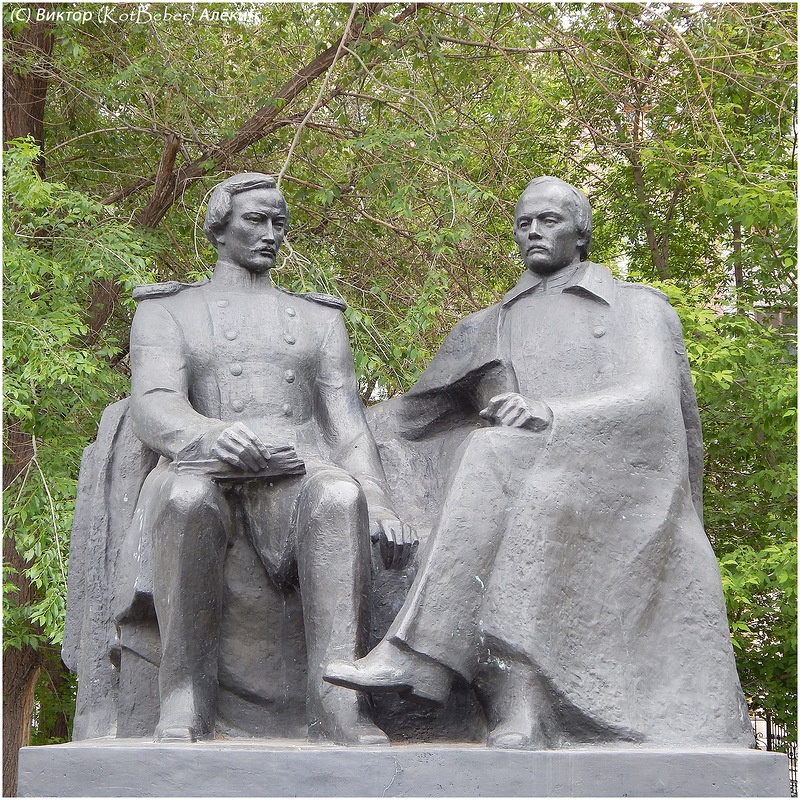
In the seventies, to the house has been made two-storey extension and installed steam bronze sculpture "Ch.Valihanov, Dostoevsky" monumental composition D.Elbakidze sculptor restraining order 452. 045. A2.
Photographs by Viktor Alyokin
Share: